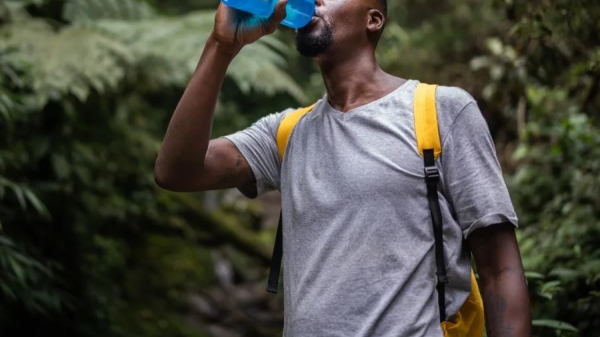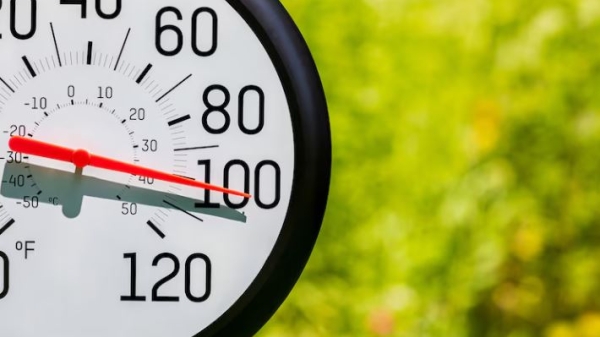Warning: Undefined array key "nid" in Drupal\taxonomy\Plugin\views\field\TaxonomyIndexTid->preRender() (line 129 of core/modules/taxonomy/src/Plugin/views/field/TaxonomyIndexTid.php).
Drupal\taxonomy\Plugin\views\field\TaxonomyIndexTid->preRender(Array) (Line: 1518)
Drupal\views\ViewExecutable->render() (Line: 131)
Drupal\views\Plugin\views\display\Block->execute() (Line: 1645)
Drupal\views\ViewExecutable->executeDisplay('block_2', Array) (Line: 81)
Drupal\views\Element\View::preRenderViewElement(Array) (Line: 61)
Drupal\views\Plugin\Block\ViewsBlock->build() (Line: 106)
Drupal\layout_builder\EventSubscriber\BlockComponentRenderArray->onBuildRender(Object, 'section_component.build.render_array', Object)
call_user_func(Array, Object, 'section_component.build.render_array', Object) (Line: 111)
Drupal\Component\EventDispatcher\ContainerAwareEventDispatcher->dispatch(Object, 'section_component.build.render_array') (Line: 90)
Drupal\layout_builder\SectionComponent->toRenderArray(Array, ) (Line: 88)
Drupal\layout_builder\Section->toRenderArray(Array) (Line: 318)
Drupal\layout_builder\Entity\LayoutBuilderEntityViewDisplay->buildSections(Object) (Line: 278)
Drupal\layout_builder\Entity\LayoutBuilderEntityViewDisplay->buildMultiple(Array) (Line: 339)
Drupal\Core\Entity\EntityViewBuilder->buildComponents(Array, Array, Array, 'default') (Line: 281)
Drupal\Core\Entity\EntityViewBuilder->buildMultiple(Array) (Line: 238)
Drupal\Core\Entity\EntityViewBuilder->build(Array)
call_user_func_array(Array, Array) (Line: 111)
Drupal\Core\Render\Renderer->doTrustedCallback(Array, Array, 'Render #pre_render callbacks must be methods of a class that implements \Drupal\Core\Security\TrustedCallbackInterface or be an anonymous function. The callback was %s. See https://www.drupal.org/node/2966725', 'exception', 'Drupal\Core\Render\Element\RenderCallbackInterface') (Line: 858)
Drupal\Core\Render\Renderer->doCallback('#pre_render', Array, Array) (Line: 421)
Drupal\Core\Render\Renderer->doRender(Array, ) (Line: 240)
Drupal\Core\Render\Renderer->render(Array) (Line: 939)
Drupal\views\Plugin\views\field\EntityField->render_item(0, Array) (Line: 1208)
Drupal\views\Plugin\views\field\FieldPluginBase->advancedRender(Object) (Line: 238)
template_preprocess_views_view_field(Array, 'views_view_field', Array)
call_user_func_array('template_preprocess_views_view_field', Array) (Line: 261)
Drupal\Core\Theme\ThemeManager->render('views_view_field', Array) (Line: 480)
Drupal\Core\Render\Renderer->doRender(Array, ) (Line: 240)
Drupal\Core\Render\Renderer->render(Array) (Line: 1784)
Drupal\views\Plugin\views\field\FieldPluginBase->theme(Object) (Line: 765)
Drupal\views\Plugin\views\style\StylePluginBase->elementPreRenderRow(Array)
call_user_func_array(Array, Array) (Line: 111)
Drupal\Core\Render\Renderer->doTrustedCallback(Array, Array, 'Render #pre_render callbacks must be methods of a class that implements \Drupal\Core\Security\TrustedCallbackInterface or be an anonymous function. The callback was %s. See https://www.drupal.org/node/2966725', 'exception', 'Drupal\Core\Render\Element\RenderCallbackInterface') (Line: 858)
Drupal\Core\Render\Renderer->doCallback('#pre_render', Array, Array) (Line: 421)
Drupal\Core\Render\Renderer->doRender(Array, ) (Line: 240)
Drupal\Core\Render\Renderer->render(Array) (Line: 704)
Drupal\views\Plugin\views\style\StylePluginBase->renderFields(Array) (Line: 570)
Drupal\views\Plugin\views\style\StylePluginBase->renderGrouping(Array, Array, 1) (Line: 461)
Drupal\views\Plugin\views\style\StylePluginBase->render(Array) (Line: 2174)
Drupal\views\Plugin\views\display\DisplayPluginBase->render() (Line: 1548)
Drupal\views\ViewExecutable->render() (Line: 131)
Drupal\views\Plugin\views\display\Block->execute() (Line: 1645)
Drupal\views\ViewExecutable->executeDisplay('block_4', Array) (Line: 81)
Drupal\views\Element\View::preRenderViewElement(Array) (Line: 61)
Drupal\views\Plugin\Block\ViewsBlock->build() (Line: 106)
Drupal\layout_builder\EventSubscriber\BlockComponentRenderArray->onBuildRender(Object, 'section_component.build.render_array', Object)
call_user_func(Array, Object, 'section_component.build.render_array', Object) (Line: 111)
Drupal\Component\EventDispatcher\ContainerAwareEventDispatcher->dispatch(Object, 'section_component.build.render_array') (Line: 90)
Drupal\layout_builder\SectionComponent->toRenderArray(Array, ) (Line: 88)
Drupal\layout_builder\Section->toRenderArray(Array) (Line: 318)
Drupal\layout_builder\Entity\LayoutBuilderEntityViewDisplay->buildSections(Object) (Line: 278)
Drupal\layout_builder\Entity\LayoutBuilderEntityViewDisplay->buildMultiple(Array) (Line: 339)
Drupal\Core\Entity\EntityViewBuilder->buildComponents(Array, Array, Array, 'full') (Line: 24)
Drupal\node\NodeViewBuilder->buildComponents(Array, Array, Array, 'full') (Line: 281)
Drupal\Core\Entity\EntityViewBuilder->buildMultiple(Array) (Line: 238)
Drupal\Core\Entity\EntityViewBuilder->build(Array)
call_user_func_array(Array, Array) (Line: 111)
Drupal\Core\Render\Renderer->doTrustedCallback(Array, Array, 'Render #pre_render callbacks must be methods of a class that implements \Drupal\Core\Security\TrustedCallbackInterface or be an anonymous function. The callback was %s. See https://www.drupal.org/node/2966725', 'exception', 'Drupal\Core\Render\Element\RenderCallbackInterface') (Line: 858)
Drupal\Core\Render\Renderer->doCallback('#pre_render', Array, Array) (Line: 421)
Drupal\Core\Render\Renderer->doRender(Array, ) (Line: 240)
Drupal\Core\Render\Renderer->render(Array, ) (Line: 238)
Drupal\Core\Render\MainContent\HtmlRenderer->Drupal\Core\Render\MainContent\{closure}() (Line: 627)
Drupal\Core\Render\Renderer->executeInRenderContext(Object, Object) (Line: 239)
Drupal\Core\Render\MainContent\HtmlRenderer->prepare(Array, Object, Object) (Line: 128)
Drupal\Core\Render\MainContent\HtmlRenderer->renderResponse(Array, Object, Object) (Line: 90)
Drupal\Core\EventSubscriber\MainContentViewSubscriber->onViewRenderArray(Object, 'kernel.view', Object)
call_user_func(Array, Object, 'kernel.view', Object) (Line: 111)
Drupal\Component\EventDispatcher\ContainerAwareEventDispatcher->dispatch(Object, 'kernel.view') (Line: 186)
Symfony\Component\HttpKernel\HttpKernel->handleRaw(Object, 1) (Line: 76)
Symfony\Component\HttpKernel\HttpKernel->handle(Object, 1, 1) (Line: 58)
Drupal\Core\StackMiddleware\Session->handle(Object, 1, 1) (Line: 48)
Drupal\Core\StackMiddleware\KernelPreHandle->handle(Object, 1, 1) (Line: 28)
Drupal\Core\StackMiddleware\ContentLength->handle(Object, 1, 1) (Line: 32)
Drupal\big_pipe\StackMiddleware\ContentLength->handle(Object, 1, 1) (Line: 191)
Drupal\page_cache\StackMiddleware\PageCache->fetch(Object, 1, 1) (Line: 128)
Drupal\page_cache\StackMiddleware\PageCache->lookup(Object, 1, 1) (Line: 82)
Drupal\page_cache\StackMiddleware\PageCache->handle(Object, 1, 1) (Line: 48)
Drupal\Core\StackMiddleware\ReverseProxyMiddleware->handle(Object, 1, 1) (Line: 51)
Drupal\Core\StackMiddleware\NegotiationMiddleware->handle(Object, 1, 1) (Line: 36)
Drupal\Core\StackMiddleware\AjaxPageState->handle(Object, 1, 1) (Line: 51)
Drupal\Core\StackMiddleware\StackedHttpKernel->handle(Object, 1, 1) (Line: 704)
Drupal\Core\DrupalKernel->handle(Object) (Line: 19)


